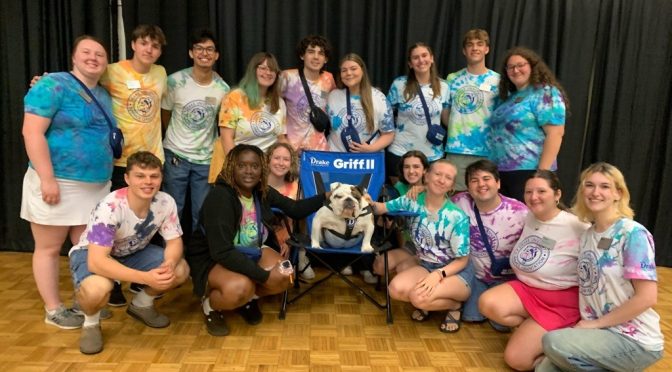All Staff Council and Human Resources invite faculty and staff to attend this year’s Holiday Cheer gathering on Tuesday, Dec. 16, by the Pomerantz stage in the Olmsted Center. You are welcome to come and go as you please from 9 to 11 a.m.
Relax and enjoy some tasty holiday treats and beverages with friends and colleagues. Griff II will make an appearance near the beginning of the event, so if you time it right, you may be able to get your picture taken with him in your favorite holiday attire.
If you bring at least one non-perishable food or other goods for Drake’s Free Little Food Pantries, you will be entered into a drawing for a chance to win a prize. We would love to stock the pantry before the holiday break.
This event is a chance to give back to others in the Drake community, while mingling with coworkers. Please take a moment to stop by, grab some cheer, and drop off a donation.
— Linda Feiden, Human Resources





